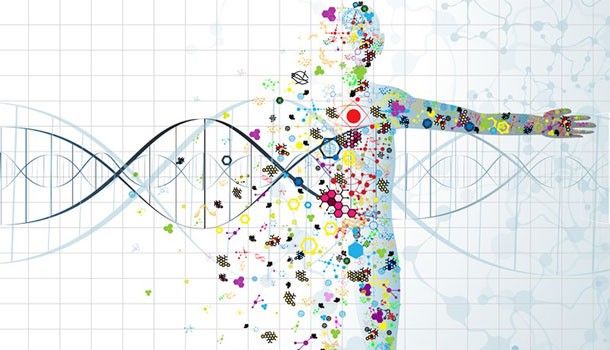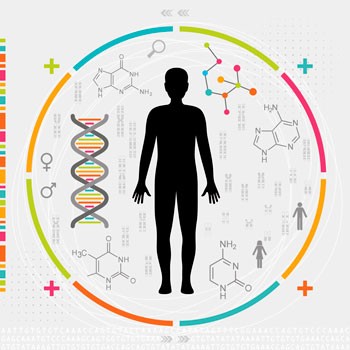Why

With the mapping of the human genome and other recent scientific advances, we can now sequence the genome of each individual patient. Scientists and doctors are beginning to harness the power of genomic sequencing to make treatment as patient-specific and precise as possible. Improved capabilities to gather and analyze vast amounts of data are leading to new diagnostic methods and to the identification of new applications for existing drugs. And data analysis is also providing new perspectives on the critical relationship between an individual’s health and her genome, environment, and lifestyle.
What do we know about a patient before she walks through the door? What are the particular molecular characteristics of her specific disease? How will it respond to treatment with the therapies available? What will the medications’ side effects be for her? And how will we handle the ethical and social questions that new targeted therapies may raise?
Precision medicine will help us answer these and other vital questions, making it possible to provide the right drug at the right dose at the right time for more patients every day.
The Challenge

Although we have technology that enables rapid genomic sequencing at ever lower prices, the process of translating genomic data into biological understanding and clinical treatment is only now becoming possible. Most genetic diseases are complex, involving multiple genetic mutations and pathways—at least 25 genes are associated with ALS, for example. Only through large studies involving many participants can we begin to understand the meaning of each piece of the genome, in turn giving us the power to translate the growing amount of raw genomic data into actionable scientific discovery.
As precision medicine becomes integrated into clinical care, it is vital that we address crucial ethical, social, and legal questions. Who will have access to new, life-saving technologies? Will having a certain genetic profile lead to discrimination? How do we distinguish between disability and human variation? Can we guarantee that an individual’s genetic data remains private?
With the capacity to heal the human body in new ways, we have a responsibility—to ourselves and future generations—to match breakthroughs in technology with perspectives that encompass the full human being.
The Columbia Commitment

The Columbia Precision Medicine Initiative brings together medicine, genomics, data science, and the core science and engineering disciplines. Together, Columbians are using a whole-system approach in understanding how diseases work to develop drugs that target pathways regulated by multiple genes. Columbia researchers are applying sophisticated mathematics to vast data sets, leading to new insights in cancer, neuroscience, biology, and more.
Columbia’s Precision Medicine Initiative does not stop there. Faculty and students in social sciences, humanities, law, and business are working together to understand and address complicated societal questions through Columbia’s Precision Medicine and Society Initiative. Enriched by these perspectives, Columbia is identifying and addressing ethical concerns such as inequalities in representation and access.
Columbia commits to realizing the promise of precision medicine, transforming the way patients are diagnosed and treated while revolutionizing our understanding of human biology and the relationship between an individual and society.
Learn more about our commitment to Precision Medicine
Learn about our other Columbia Commitments
Make a gift to support the Columbia Global Centers
Related News from the Global Centers
AMMAN — A global nursing and midwifery summit, to be held in Amman on July 24-25, will address large global health disparities and the development of a robust nursing and midwifery profession, a critical goal in regions with challenged human resources for healthcare services, a statement by the organisers said.
Provost John H. Coatsworth has announced the fifth round of grants from the President’s Global Innovation Fund (PGIF) on June 1, 2017. 11 projects received awards this year after being selected by a review committee of senior faculty drawn from both the Morningside and medical campuses.
Columbia Global Centers | Nairobi, hosted “Moving the Agenda Forward for Nursing and Midwifery Clinical Research in Southern and Eastern Africa”, on July 8th – 9th, 2015 in Nairobi Kenya. Partners included:
- Columbia University School of Nursing
- School of Nursing Sciences University of Nairobi
- Kamuzu College of Nursing of the University of Malawi
- Forum for University Nursing Deans in South Africa
- WHO Regional Office for Africa.
The aim of the research summit was to promote regional and international relationships for increasing clinical research capacity in nursing schools in Africa and to emphasize the importance of conducting research on priorities identified by regional nursing and midwifery research experts. The participants agreed that the summit achieved its objectives of reaching consensus on identifying nursing research priorities, gaps, and barriers as well as creating an international infrastructure for addressing them. They also agreed that implementing critical research priorities will require the continued efforts of each of the participants and well as government and non-public sector collaborators.